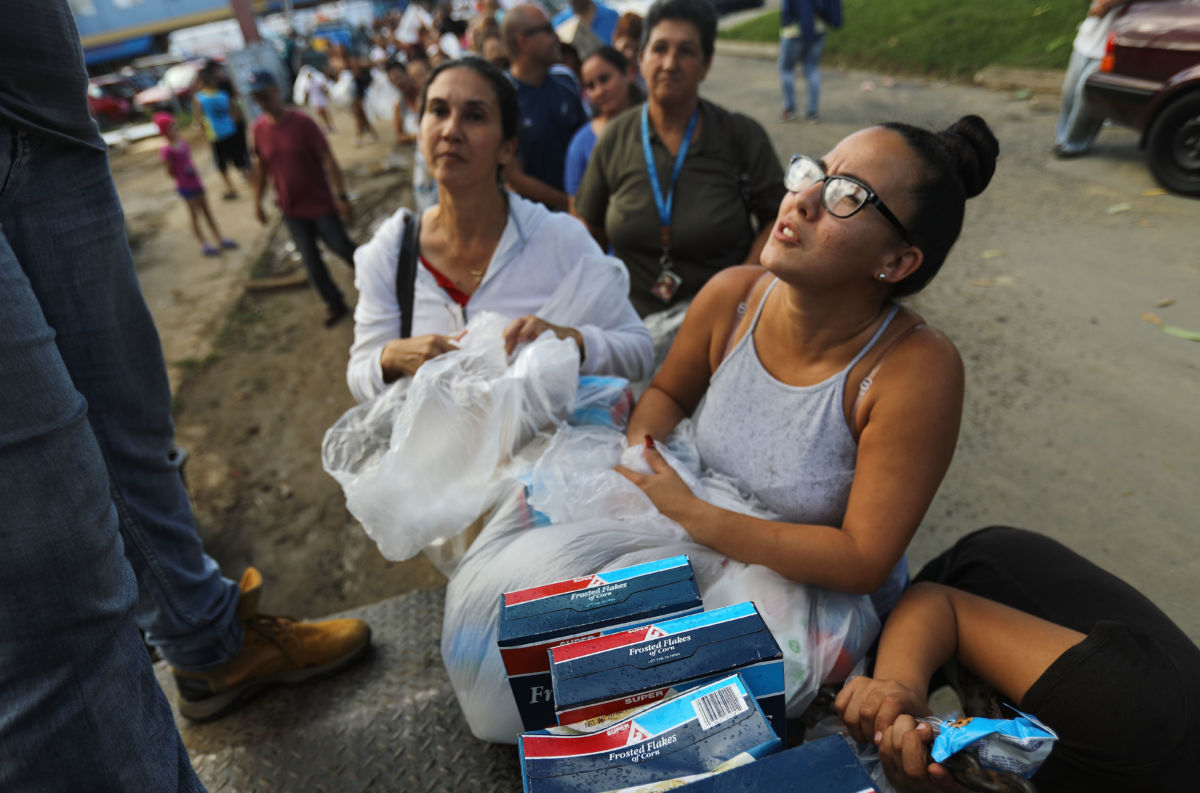Some 1.35 million low-income residents of Puerto Rico — more than a third of its population — reportedly have had, or will have, their food assistance benefits cut dramatically this month because its disaster food aid has run out and the President and Congress haven’t granted the governor’s request for $600 million more in funding. The House passed an aid package that includes the funds. A proposal introduced in the Senate also extends disaster food assistance for Puerto Rico, but the Senate must act quickly to ensure those still suffering in the aftermath of Hurricanes María and Irma can meet their basic food needs.
Governor Ricardo Rosselló’s requested funds would maintain current benefits under the Nutrition Assistance Program (NAP), Puerto Rico’s version of SNAP (food stamps), for about six more months. The President and Congress provided additional NAP funding after the hurricanes to better meet increased food needs and to slightly expand the program to more needy households, including many workers. But that funding has run out, forcing Puerto Rico’s Department of the Family to cut spending on basic food aid by $100 million per month. Cuts to households are reportedly significant. A family of four with no or very low cash income, for example, would have received the maximum NAP benefit of $649 last month — the same amount that a similar household would receive from SNAP. Now, this household’s monthly benefit will drop by 37 percent to $410, which is the pre-disaster benefit level. An older adult who lives alone and received $194 last month will see his benefits for March drop by 42 percent to $112.
Never miss another story
Get the news you want, delivered to your inbox every day.
The disaster food aid was intended to be temporary, but local conditions warrant an extension. The governor argues that Puerto Rico needs the additional aid due to its ongoing struggle to recover from Hurricanes Irma and María, as well as larger structural problems with NAP’s financing that make it a significantly smaller and underpowered program than SNAP.
Unlike SNAP, a federal entitlement in which everyone eligible for benefits under its formula receives them at the full benefit level and which has special provisions to provide food aid after a disaster, NAP is a block grant. Its capped annual funding prevents it from meeting the basic food needs of poor citizens living in Puerto Rico, including children, seniors, and people with disabilities. The program is available to fewer low-income households and typically provides much smaller benefits.
The best long-term solution to Puerto Rico’s nutrition assistance needs would be to let SNAP operate again in the Commonwealth, as it did until the early 1980s. But the immediate priority is for the Senate to join the House in providing Governor Rosselló’s request so that those still suffering from the hurricanes can meet their basic food needs.
Our most important fundraising appeal of the year
December is the most critical time of year for Truthout, because our nonprofit news is funded almost entirely by individual donations from readers like you. So before you navigate away, we ask that you take just a second to support Truthout with a tax-deductible donation.
This year is a little different. We are up against a far-reaching, wide-scale attack on press freedom coming from the Trump administration. 2025 was a year of frightening censorship, news industry corporate consolidation, and worsening financial conditions for progressive nonprofits across the board.
We can only resist Trump’s agenda by cultivating a strong base of support. The right-wing mediasphere is funded comfortably by billionaire owners and venture capitalist philanthropists. At Truthout, we have you.
We’ve set an ambitious target for our year-end campaign — a goal of $250,000 to keep up our fight against authoritarianism in 2026. Please take a meaningful action in this fight: make a one-time or monthly donation to Truthout before December 31. If you have the means, please dig deep.
